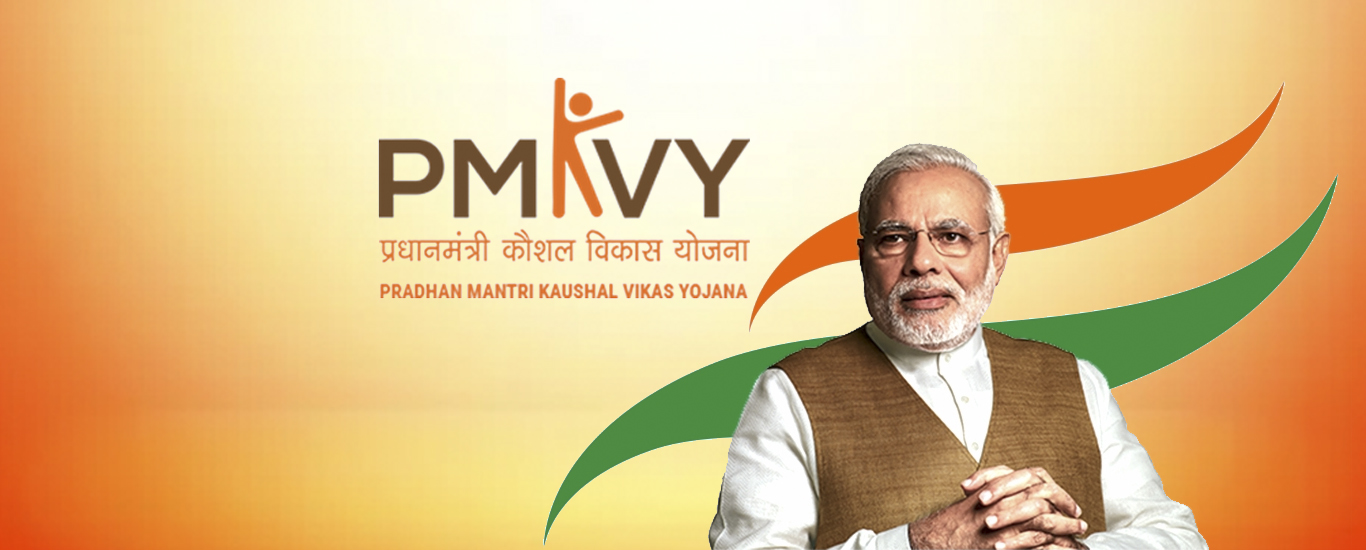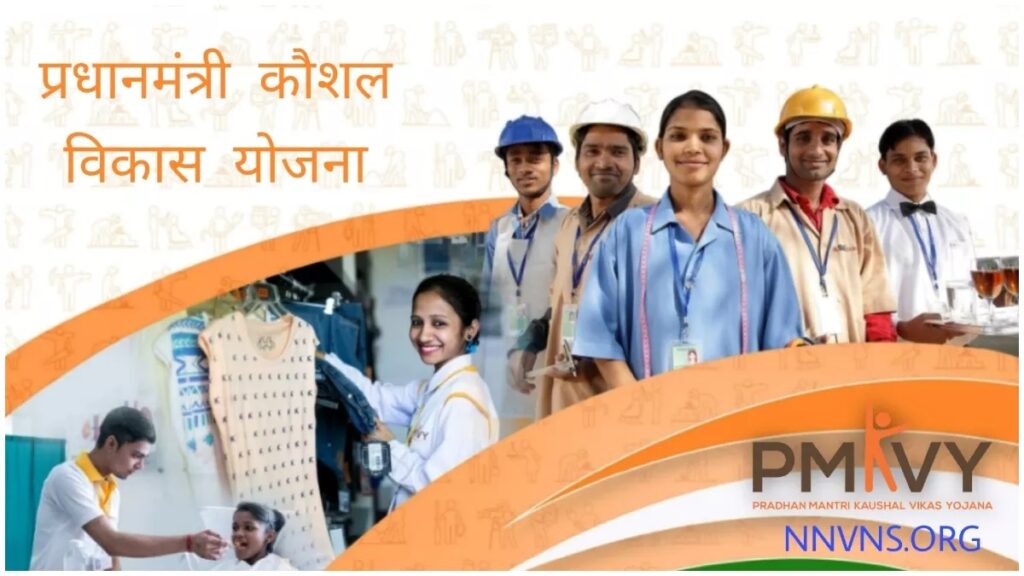Pradhan Mantri Kaushal Vikas Yojana- 2.0
Relevance
- GS Paper 2 Important aspects of governance, transparency and accountability, e-governance, applications, models, successes, limitations, and potential;
- Government policies and interventions for development in various sectors and issues arising out of their design and implementation.
- Tags: #pmkvy #scheme #currentaffairs #upsc
Benefits of PMKVY
The Pradhan Mantri Kaushal Vikas Yojana (PMKVY) offers a range of benefits to both individuals and the nation as a whole.
- Skill Enhancement: PMKVY provides valuable training and skill development opportunities across a wide array of sectors. It equips individuals with practical skills that are in demand in the job market, improving their employability.
- Youth Empowerment: By focusing on the youth of the nation, PMKVY empowers them with the skills necessary to secure meaningful employment. This not only reduces the rate of unemployment but also enhances the overall economic potential of the country.
- Alignment with Industry Needs: The program is designed to meet the demands of various industries. It ensures that the skills imparted are relevant and in line with the requirements of employers, thereby bridging the gap between job seekers and job providers.
- Standardization: PMKVY follows the National Skills Qualification Framework (NSQF), which provides a standardized system for skill training and certification. This ensures that the qualifications earned are recognized nationally and internationally.
- Increased Earning Potential: Those who complete PMKVY training and obtain certification often witness an improvement in their income levels. The acquired skills allow them to access better-paying job opportunities.
- Placement Assistance: PMKVY collaborates with training partners who offer placement assistance to certified candidates. This support is crucial in helping individuals secure jobs that match their newly acquired skills.
- Recognition of Prior Learning: PMKVY recognizes the skills and experience of individuals who may not have formal qualifications. The Recognition of Prior Learning (RPL) component allows these individuals to obtain certification for their existing skills.
- Entrepreneurship Development: The program encourages entrepreneurship by providing support for individuals to start their own ventures. This not only promotes self-reliance but also contributes to economic growth.
- Increased Productivity: The skills gained through PMKVY training contribute to the productivity of the workforce. This benefits industries, as well as the economy at large.
- Digital Expansion: PMKVY has embraced technology to provide digital and online training. This approach ensures that a broader audience can access skill development opportunities, especially relevant in the context of the COVID-19 pandemic.
- Global Opportunities: PMKVY is now gearing up to prepare candidates for international opportunities through the establishment of Skill India International Centers. This opens doors for global employment prospects.
- Inclusive Development: PMKVY caters to a diverse group of individuals, including school dropouts, college students, and the underprivileged, ensuring that skill development reaches every stratum of society.
Challenges to PMKVY
Implementing a program as ambitious as the Pradhan Mantri Kaushal Vikas Yojana (PMKVY) in India presents several significant challenges from an Indian perspective:
- Mismatch of Training and Placement: Historically, candidates have been trained and certified for specific job roles but often end up in entirely different roles. To address this, PMKVY should strengthen industry connections and ensure that training aligns with real job market demands.
- Training Misalignment: Training programs must be closely aligned with industry demand. Efforts should be made to identify job roles with actual demand to prevent training in areas where jobs are scarce.
- Location Mismatch: The discrepancy between training locations and job placements can lead to attrition due to high living costs. Addressing this challenge involves coordinating with employers to place candidates in areas near their home towns.
- Lower Training Payouts: To enhance the quality of training, a more balanced fee structure is needed. This could involve contributions from students or employers, ensuring a more sustainable model.
- Student Pay Outs: The requirement for students to pay the entire fee, including assessment costs, poses a challenge, especially when job prospects are uncertain. Training providers with strong job linkages can mitigate this challenge.
- Franchising Quality Control: The possibility of sub-standard training delivered by franchisees should be addressed by implementing rigorous quality control measures, including independent auditors and assessments.
- Focus on School Dropouts: PMKVY’s emphasis on school dropouts needs a balanced approach. Graduates should also receive attention through training and job counseling to alleviate their frustration.
- Mobilization Support: Pre-assessment of candidates for suitability and fitment for specific courses is essential. The government should introduce guidelines for pre-assessment and emphasize candidate suitability over mere aspiration in mobilization efforts.
Solution to the challenges
Addressing the challenges associated with the Pradhan Mantri Kaushal Vikas Yojana (PMKVY) is crucial for its success.
- Capacity Building of District Skill Committees (DSC): DSCs play a vital role in decentralizing skill development. Building their capacity is essential to ensure efficient resource utilization and the inclusion of marginalized sections in skill development initiatives.
- Leveraging Skill Training for Socio-Economic Development: Skill training programs can be aligned with socio-economic development. For instance, mechanizing work for manual scavengers and rag-pickers can yield monetary benefits, drive social change, and open entrepreneurial and career opportunities for individuals from marginalized communities.
- Empowering States: State governments should not only send officials for skill enhancement but also provide incentives for trained officers. These incentives can include choices for their next postings, extensions in deputation posts, sponsorship for higher training courses, and more.
- Micro-Level Study for District Skill Planning: Understanding the socio-economic profile of the district population requires a micro-level study. This study should consider individuals’ attitudes and aspirations to tailor skill development programs effectively.
- Distinguishing Between Local and Beyond-Local Training: The government should differentiate between local-level training for livelihoods and training aimed at broader, state, national, or international opportunities. Encouraging individuals to seek training beyond the local level can enhance their career prospects.
- Engaging with Industry Representatives: Collaboration with local industries, trade chambers, sector skill councils, and experts is vital to identify and offer relevant industrial skills. Additionally, providing courses in self-development, interpersonal communication, and other soft skills can boost employability.
- Recognizing Backward and Forward Linkages: Comprehensive skill training programs should address not only the specific skills but also the broader context. For instance, skill training in the tourism sector should encompass knowledge of national and state tourism maps, destinations, and policies.
- Implement stringent monitoring and assessment processes to ensure that candidates are placed in roles that align with their training and certification. Encourage employers to specify their skill requirements clearly when hiring.
- Prioritize training locations that are geographically closer to areas with high job demand. Enhance support for candidates who need to migrate for employment, including providing information on affordable accommodation options.
- Differentiate training fees based on the technicality of job roles. Encourage contributions from students and employers to fund training, as this will ensure more sustainable and higher-quality training programs.
- Implement strict quality control measures and audits for training providers who franchise their programs. Ensure that franchised training meets the required standards and maintains quality.
- Revise the allocation of resources to provide an equal focus on both graduates and school dropouts. Graduates require skill training and job counseling to enhance their employability.
- Introduce pre-assessment guidelines for candidates to evaluate their suitability for specific courses. Incorporate personality and attitude assessments into the selection process. Ensure that government mobilization efforts focus on the suitability of candidates for specific jobs rather than solely on youth aspirations.
In conclusion, the success of PMKVY depends on transparent target allocation to Sector Skill Councils (SSCs), efficient allocation by SSCs to training partners, and robust monitoring systems.
Additionally, timely payments to training partners and their wholehearted participation are essential. Implementing these solutions can help overcome the challenges and ensure PMKVY’s effectiveness in enhancing employability and skill development in India.
Mains question
In the context of Pradhan Mantri Kaushal Vikas Yojana (PMKVY), critically analyze the key challenges and their implications on skill development initiatives and youth employability in India.





